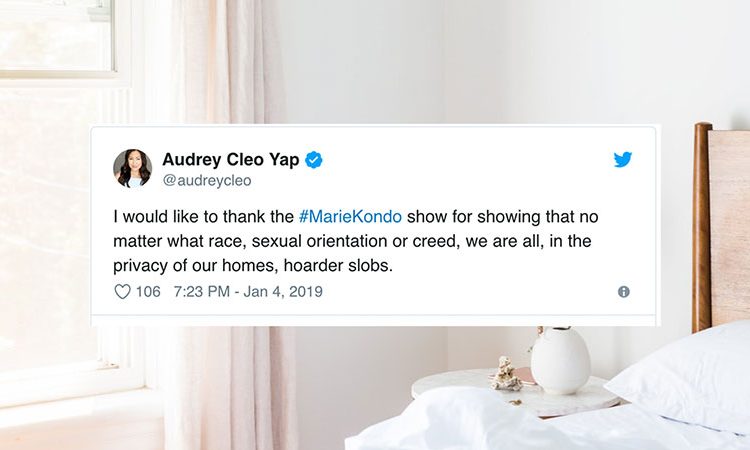
The world underestimated Coretta Scott King.
She was not a helpmate or footnote to her husband’s iconic story and the Civil Rights Movement he led. King was a three-dimensional woman who was an activist before she met her husband and long after his assassination in 1968.
While the world relegated her to widow’s weeds, King fought racism, sexism, poverty, apartheid, homophobia, and war while raising four children in the constant shadow of her husband.
“My story is a freedom song from within my soul,” King said. “It is a guide to discovery, a vision of how even the worst pain and heartaches can be channeled into human monuments, impenetrable and everlasting.”
In honor of what would have been King’s 91st birthday today, here are the Top 10 Reasons Why Coretta Scott King Was a Queen.

- King wasn’t new to this, she did this. Born in 1927 in Marion, Alabama, King grew up in the Klan-controlled south and knew of the cruelty of racism and poverty long before she met her husband. As a child, King picked cotton for $2 a week to help earn money for her family. White neighbors burned her father’s lumber mill because he refused to be bullied by a white logger.
- King was an activist when she met her husband. She became politically active after a local school board in Yellow Springs, Ohio refused to allow her to complete her required second year of teaching in its public schools. Consequently, she became a member of a chapter of the National Association for the Advancement of Colored People (NAACP) at Antioch College, where she was a student and the college’s Race Relations and Civil Liberties Committees.

- King had a dream and pursued it. She was an accomplished vocalist who earned a scholarship to study voice at the New England Conservatory of Music, where she earned a bachelor’s degree in music. While here, a mutual friend introduced her to an ambitious preacher from Atlanta named Martin King. When her husband and other men threatened to sideline her during the Civil Rights Movement, King appeared in and arranged concerts to raise money for the Student Nonviolent Coordinating Committee (SNCC).
- King removed the word “obey” from her marriage vows. Coretta and Martin married on June 18, 1953 on the lawn of her mother’s house. It was an unprecedented move for the time, especially since her future father-in-law performed the ceremony.

- King understood her steady presence was integral to the advancement of the Civil Rights Movement. During the Montgomery Bus Boycott, King’s home was bombed while she was in the back with her daughter Yolanda and a friend. King’s father and father-in-law urged her to take her baby and retreat to her family’s home in Marion if her husband did not move the family to Atlanta. She remained by her husband’s side and later said of the experience, “…I was tested by fire and I came to understand that I was not a breakable crystal figurine. I found I became stronger in a crisis.”
- King was a peace activist in her own right. In 1959, she traveled with her husband to India for five weeks as part of a delegation of local leaders and activists learned about Gandhi’s work and met with India Prime Minister Jawaharlal. She was a delegate in 1962 for the Women’s Strike for Peace to the seventeen-nation Disarmament Conference in Geneva, Switzerland. As U.S. involvement in Vietnam intensified during the early 1960s, King became increasingly vocal on peace issues and joined the Women’s International League for Peace and Freedom.

- King used notes taken from her husband’s pockets after his death to give a stirring, anti-war speech at a demonstration in Central Park. Three weeks after Martin Luther King Jr. was assassinated in April 1968, King took her husband’s place at a rally where he planned to speak. In one speech, King denounced the Vietnam War, advocated for the full-funding of public assistance for women and children, and encouraged women to be the “best and last hope for a world of peace and brotherhood.”
- King was among the first, prominent African American Christians to advocate for the LGBQT community. In August 1983, King urged Congress to amend the Civil Rights Act to include gays and lesbians as a protected class of citizens. Defying many black preachers, King supported same-sex marriage saying, “A constitutional amendment banning same-sex marriage is a form of gay bashing and it would do nothing to protect traditional marriages.”

Coretta Scott King poses next to the portrait of her late husband, Dr. Martin Luther King, in the East Colonnade of the White House in Feb. 25, 2004. White House photo by Tina Hager
- King actively opposed apartheid. She was arrested in 1985, along with two of her children, while taking part of an anti-apartheid protest at the South African Embassy in Washington D.C. King met Nelson Mandela in September 1986 while he was still imprisoned during a 10-day trip to South Africa. Upon her return to the United States, King pressed then President Ronald Reagan to divest from South Africa.
- King successfully lobbied for and won a national holiday to honor her slain husband. I saved this one for last because King reportedly hated that the world saw her as an appendage to her husband’s life and legacy. However, she fought for nearly 20 years for the United States to have its one and only national holiday to commemorate the life of an African American. In 1986, President Reagan signed the legislation to create Martin Luther King Jr. Day. As of 2000, it is celebrated in all 50 states.

WASHINGTON (AFPN) — Then-President Ronald Reagan signs the bill commemorating Martin Luther King Jr.’s birthday as a national holiday on Nov. 2, 1983 in the White House rose garden. This year’s observance will mark the 77th birthday of Martin Luther King, Jr. and the twentieth anniversary of the national holiday in his honor. The holiday celebrates the life and legacy of Rev. King who was one of America’s leading Civil Rights activists. (Courtesy photo)
Each generation likes to think it has invented the world anew. King smashed the patriarchy her own way when she questioned Congress’s willingness to head into war while drastically reducing funding to help impoverished mothers and children. These are the same arguments many of us are making today.
Long before the invention of “Girl Bosses” and “leaning in,” King said during her speech at an anti-war rally held weeks following her husband’s death:
“The woman power of this nation can be the power which makes us whole and heals the rotten community, now so shattered by war and poverty and racism. I have great faith in the power of women who will dedicate themselves wholeheartedly to the task of remaking our society.”
Image source (x)











Top 10 Reasons Coretta Scott King Was a Queen – Kerra Bolton
[…] (Sweatpants & Coffee) — The world underestimated Coretta Scott King. […]
Top 10 Reasons Why Coretta Scott King Was a Queen – Kerra Bolton
[…] This post originally appeared in Sweatpants & Coffee. […]